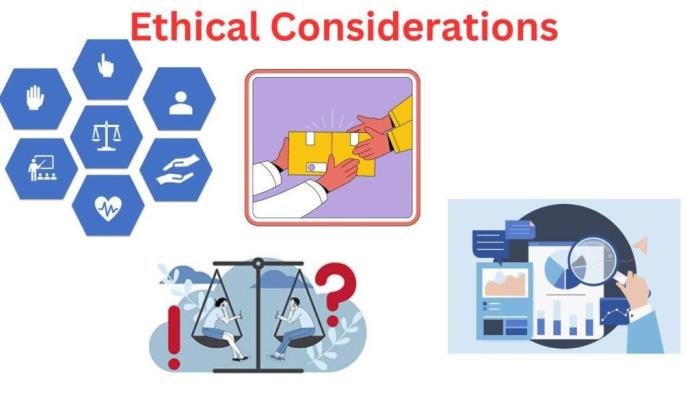Liposuction is a cosmetic surgical procedure designed to remove localized fat deposits from specific areas of the body, such as the abdomen, thighs, hips, arms, and neck. It is commonly sought by individuals who struggle with fat that does not respond to diet and exercise. The procedure involves the use of a cannula, a thin tube inserted through small incisions, which suction out excess fat, resulting in improved body contour and shape.
While liposuction can significantly enhance a person's appearance and boost confidence, it is important to note that it is not a weight-loss solution but rather a body sculpting procedure. Ideal candidates are typically within 30% of their target weight and possess elastic skin that can adjust to the new body shape post-surgery.
The Legal Framework Surrounding Liposuction Surgery
The legal framework governing liposuction surgery is essential to ensure patient safety and protect their rights. Various laws and regulations are in place that dictate how cosmetic surgery should be performed, including the standards for surgical facilities and the qualifications required for surgeons. In many regions, liposuction must be conducted in accredited surgical centers or hospitals, which are subject to strict health and safety regulations.

Additionally, malpractice laws provide a means for patients to seek recourse if a surgical procedure does not meet established medical standards, leading to complications or unsatisfactory results. Understanding this legal framework can empower patients to make informed decisions about their cosmetic procedures.
Informed Consent: Why It’s Crucial in Liposuction
Informed consent is a critical component of the liposuction process. This legal document ensures that patients are fully aware of the risks, benefits, and alternatives to the procedure before proceeding. The informed consent process involves a comprehensive discussion between the surgeon and the patient, where the surgeon provides detailed information about what to expect during and after the surgery.
This process is essential not only for protecting the patient's rights but also for fostering a trusting relationship between the patient and the surgeon. Patients must feel comfortable asking questions and expressing concerns to ensure they have a complete understanding of the procedure.
Patient Rights and Responsibilities in Liposuction Procedures
Patients undergoing liposuction have specific rights and responsibilities that are crucial for a successful surgical experience. Among their rights, patients have the right to receive clear and comprehensive information about the procedure, including risks, benefits, and recovery expectations. They are also entitled to receive care in a safe and respectful environment and to have their privacy protected.
Conversely, patients have responsibilities, such as providing accurate medical history and following preoperative and postoperative instructions provided by their surgeon. Engaging in open communication and adhering to the guidelines can significantly enhance the overall safety and effectiveness of the liposuction process.
The Role of Board Certification for Surgeons
Board certification plays a vital role in ensuring that surgeons performing liposuction are qualified and competent. Surgeons who are board-certified have undergone rigorous training and testing in their specialty, which typically includes advanced education and hands-on experience in cosmetic procedures. This certification serves as a mark of excellence and indicates that the surgeon adheres to high standards of practice.
When considering liposuction, it is essential for patients to verify their surgeon's credentials and board certification. This step can help assure patients of their surgeon's expertise and commitment to patient safety, ultimately contributing to more successful surgical outcomes.
Ethical Advertising Practices in Cosmetic Surgery
Ethical advertising in cosmetic surgery emphasizes transparency and honesty. Surgeons should avoid misleading claims and ensure that all promotional materials accurately represent the risks, benefits, and expected outcomes of procedures. Adhering to guidelines established by professional organizations helps maintain ethical standards and builds trust with potential patients.

Managing Patient Expectations: Ethical Considerations
Effectively managing patient expectations is a critical ethical responsibility for cosmetic surgeons. Clear communication about realistic outcomes and potential risks helps prevent misunderstandings and dissatisfaction post-surgery. It is essential for practitioners to assess their patients' motivations and provide thorough consultations to ensure they understand what can be achieved with procedures like liposuction.
Liability Issues in Liposuction: Who Is Responsible?
Liability in liposuction can be complex, often involving shared responsibility between surgeons, facilities, and staff. Understanding the legal implications of surgical practices is vital. Surgeons must adhere to established standards of care to mitigate the risk of malpractice claims. Comprehensive documentation and informed consent processes are crucial in establishing accountability.
The Importance of Medical Records and Documentation
Maintaining accurate medical records and documentation is essential for ethical practice in cosmetic surgery. Comprehensive records not only facilitate continuity of care but also serve as legal protection in case of disputes. Documentation should include detailed surgical notes, consent forms, and records of patient communications to ensure transparency and accountability.
Addressing Complications: Legal and Ethical Obligations
Surgeons have a legal and ethical obligation to address complications that arise during or after procedures. This includes promptly informing patients of any issues, providing appropriate treatment, and discussing the implications for their health and satisfaction. Transparency about potential complications fosters trust and supports informed decision-making.
Patient Privacy and Confidentiality in Cosmetic Surgery
Protecting patient privacy and confidentiality is a fundamental ethical obligation in cosmetic surgery. Surgeons must comply with legal regulations, such as HIPAA, to safeguard patient information. Ethical practices include obtaining informed consent before sharing patient information for educational or promotional purposes and ensuring that all communications are secure.
Ethical Dilemmas in Cosmetic Surgery: A Case Study
Analyzing ethical dilemmas through case studies can illuminate the complexities surgeons face in practice. For example, a case involving a patient with unrealistic expectations may raise questions about the surgeon's responsibility to decline the procedure or the potential psychological impact of surgery. Discussing these dilemmas fosters understanding and encourages ethical decision-making.
The Influence of Social Media on Liposuction Decisions
Social media has a significant impact on cosmetic surgery decisions, often shaping patient perceptions and expectations. Ethical considerations arise regarding how surgeons engage with patients on these platforms. Practitioners should be mindful of promoting responsible information, countering unrealistic portrayals of surgery, and avoiding exploitation of vulnerable individuals seeking validation.
Regulatory Standards for Surgical Facilities
Regulatory standards for surgical facilities are crucial for ensuring patient safety and ethical practice. Accredited facilities must adhere to stringent guidelines regarding equipment, staffing, and hygiene. Compliance with these standards not only protects patients but also reinforces the professionalism of cosmetic surgery practices.
Cultural Sensitivity and Ethical Considerations in Cosmetic Procedures
Cultural sensitivity is essential in cosmetic surgery, as individual motivations for procedures can vary significantly across different cultures. Surgeons should strive to understand and respect diverse perspectives, ensuring that their practices are inclusive and that patient care is culturally competent. This approach enhances trust and improves patient outcomes while adhering to ethical standards.
The Role of Ethics Committees in Cosmetic Surgery
Ethics committees play a vital role in addressing complex ethical dilemmas in cosmetic surgery. These committees provide guidance on ethical standards and practices, evaluate controversial cases, and help establish policies that promote patient welfare. Their involvement ensures that decisions align with ethical principles, fostering a culture of accountability and ethical practice within surgical facilities.
The Impact of Third-Party Financing on Patient Decisions
Third-party financing options can significantly influence patients' decisions regarding cosmetic procedures like liposuction. While such financing may increase accessibility, it can also lead to impulsive choices and inadequate understanding of financial obligations. Ethical considerations arise in ensuring that patients are fully informed about the terms and potential financial implications before proceeding with surgery.
Navigating Conflicts of Interest in Cosmetic Surgery
Conflicts of interest can arise when cosmetic surgeons have financial ties to specific products or facilities. Navigating these conflicts requires transparency and adherence to ethical guidelines. Surgeons must prioritize patient welfare above personal or financial interests, ensuring that recommendations for procedures or products are based on the best outcomes for the patient.
Future Trends: Legal and Ethical Challenges in Liposuction
As cosmetic surgery evolves, new legal and ethical challenges are likely to emerge. Future trends may include increased scrutiny of marketing practices, advancements in technology that raise new ethical questions, and changes in regulations governing surgical practices. Staying informed about these trends is essential for practitioners to maintain ethical standards and provide safe, effective care.
Best Liposuction Treatment in India
The Best Liposuction Treatment in India is performed by expert surgeons who utilize advanced techniques to ensure optimal outcomes for patients, offering a personalized treatment plan tailored to individual health needs.
Best Liposuction Hospitals in India
The Best Liposuction Hospitals in India are equipped with cutting-edge technology and facilities, providing top-notch care, including pre-surgery consultations, surgical expertise, and post-operative recovery support to ensure a smooth patient journey.
Liposuction Cost in India
When considering the Liposuction Cost in India, patients benefit from affordable and transparent pricing at leading hospitals, which offer cost-effective treatment options without compromising the quality of care.
Best Liposuction Doctors in India
The Best Liposuction Doctors in India are highly experienced in performing the surgery, utilizing a patient-centric approach that ensures personalized care, precise surgical techniques, and dedicated follow-up care to enhance recovery.
The Effect of Liposuction on Cellulite
Explore how liposuction impacts cellulite, and understand the results and limitations regarding treating this common concern. While liposuction can remove fat deposits, it may not effectively reduce the appearance of cellulite, highlighting the importance of managing expectations and considering alternative treatments.
Exploring Non-Surgical Alternatives to Liposuction
Learn about non-surgical options available for body contouring, such as cool sculpting, ultrasound therapy, and radiofrequency treatments. These methods can provide effective fat reduction with minimal downtime, making them appealing choices for those seeking less invasive procedures.
FAQs About Legal and Ethical Issues in Liposuction Surgery
Q: What legal protections do patients have in liposuction procedures?
A: Patients are protected by laws regulating medical practice, informed consent requirements, and malpractice regulations. It is essential for surgeons to follow these legal guidelines to ensure patient safety and accountability.
Q: How can patients ensure they are making ethical decisions regarding liposuction?
A: Patients should conduct thorough research, seek consultations with multiple qualified surgeons, and consider the ethical practices of the surgical facility. Open discussions about risks, benefits, and financial implications are crucial in making informed decisions.
Q: What should patients know about conflicts of interest in cosmetic surgery?
A: Patients should inquire about any financial relationships their surgeon may have with product manufacturers or facilities. Understanding these relationships helps patients evaluate the motivations behind recommendations and ensures their best interests are prioritized.
Q: How can ethics committees influence cosmetic surgery practices?
A: Ethics committees can provide oversight, develop policies, and offer guidance on ethical dilemmas, ensuring that surgical practices align with established ethical standards and promote patient safety and welfare.
Q: What emerging legal issues should patients be aware of in liposuction?
A: Patients should stay informed about potential changes in regulations, liability issues, and the evolving landscape of cosmetic surgery, as these factors may affect their rights and protections in surgical procedures.